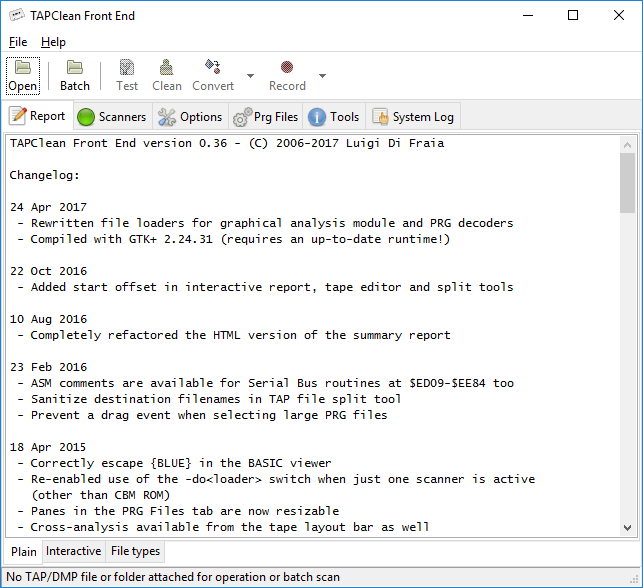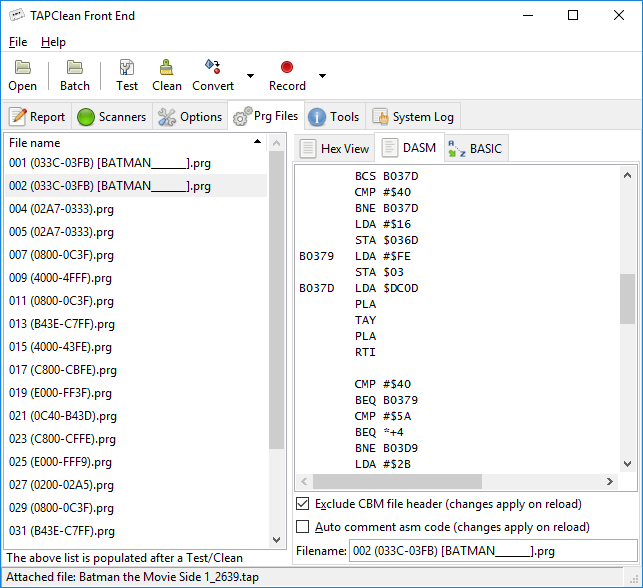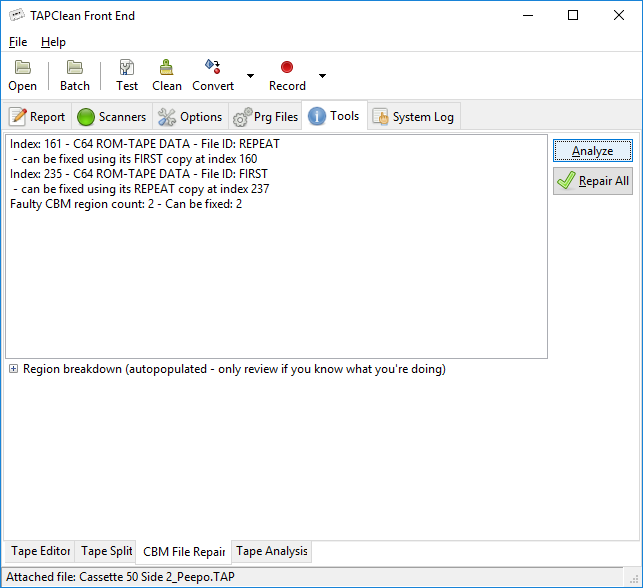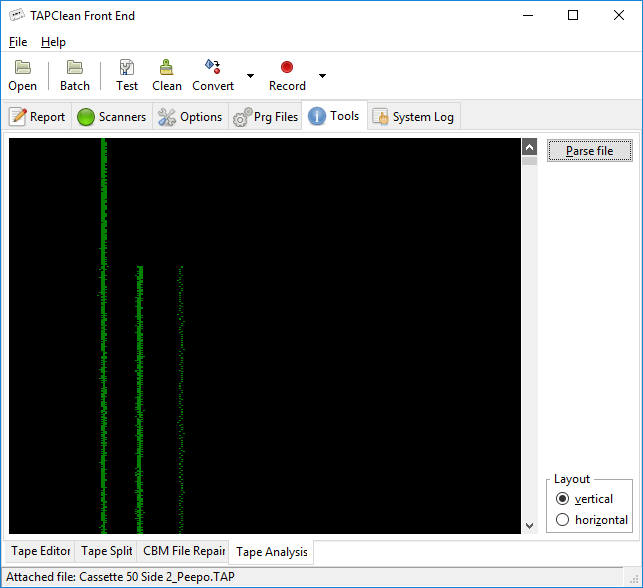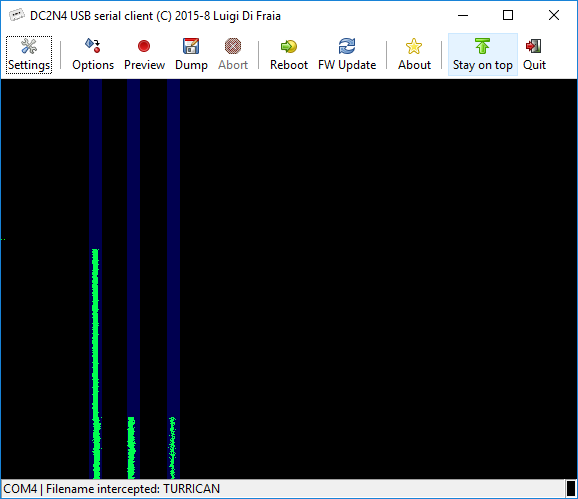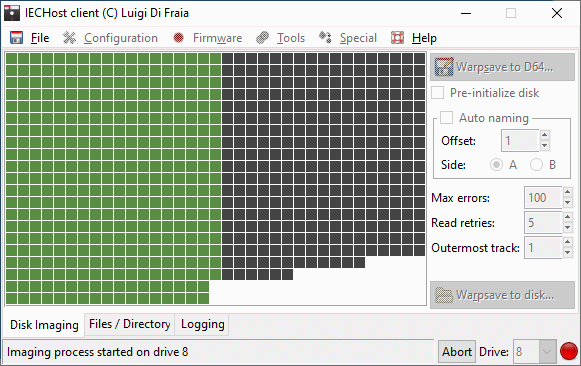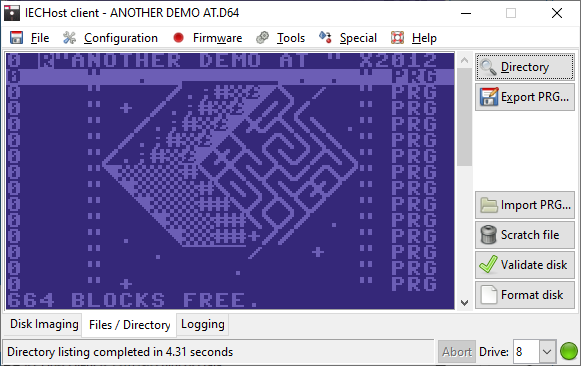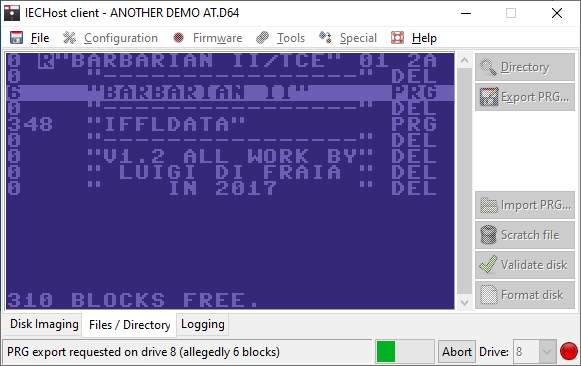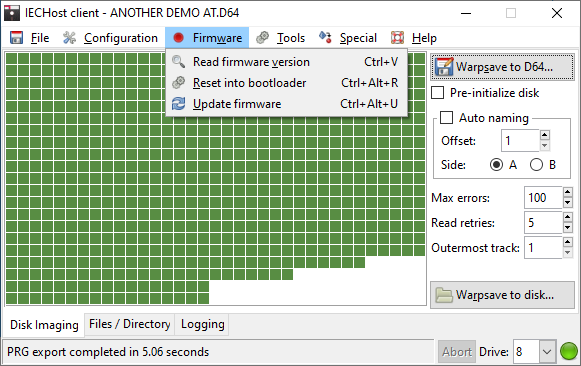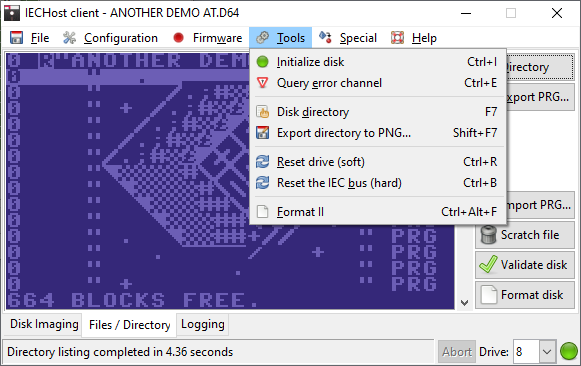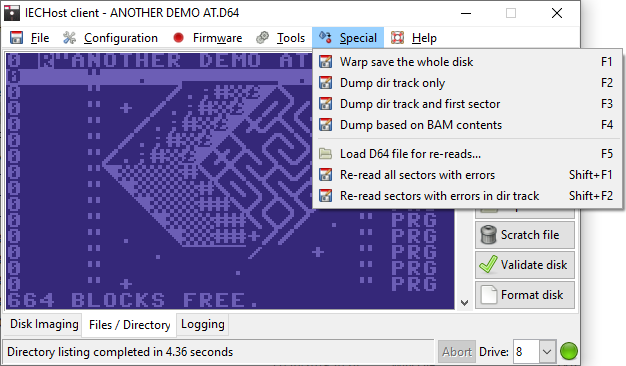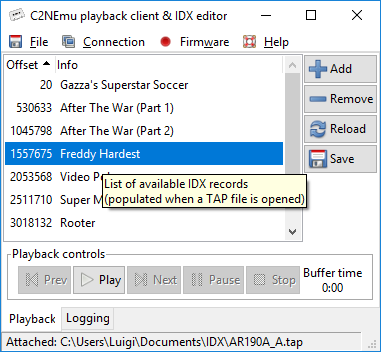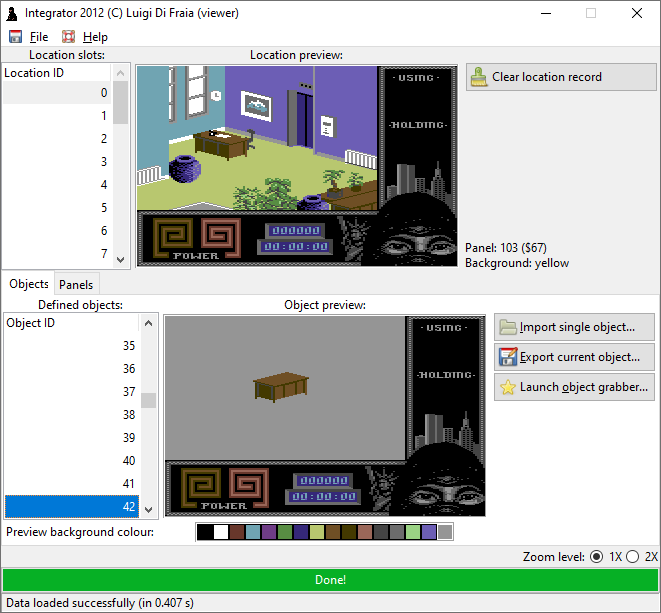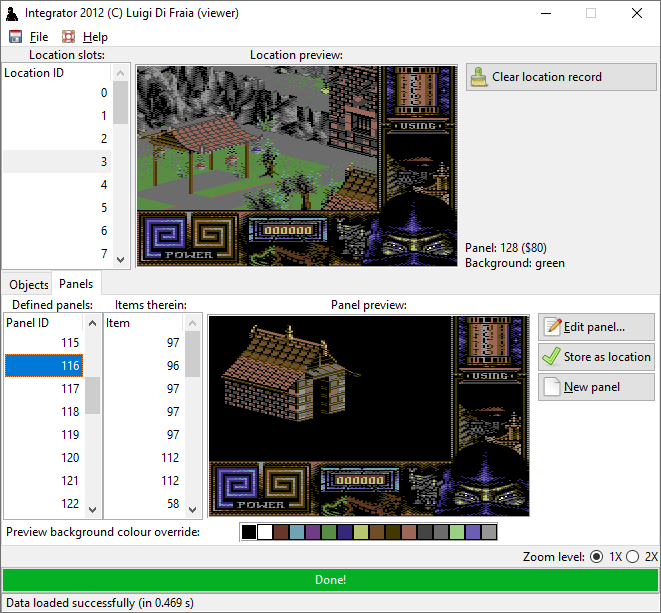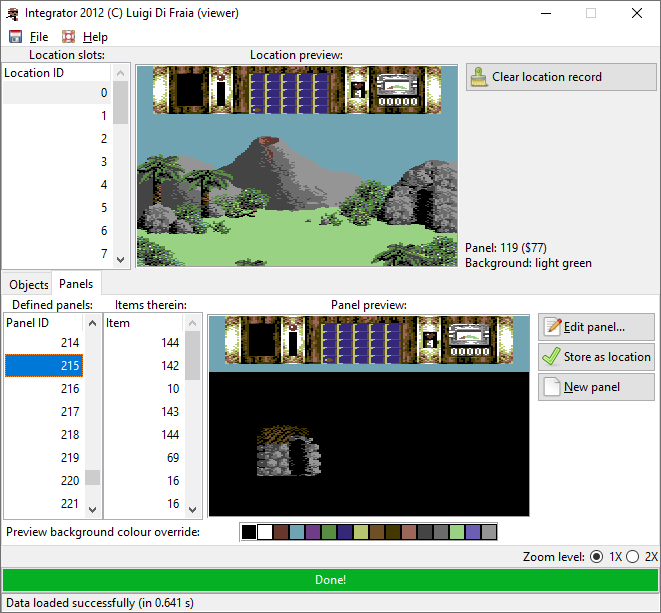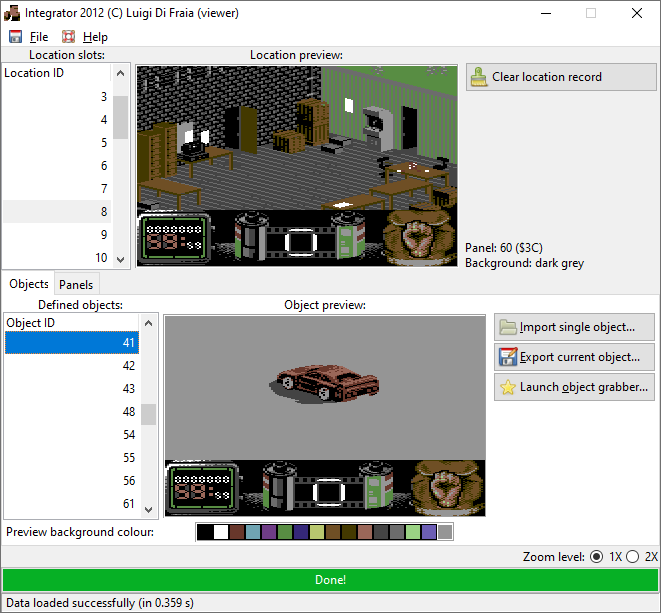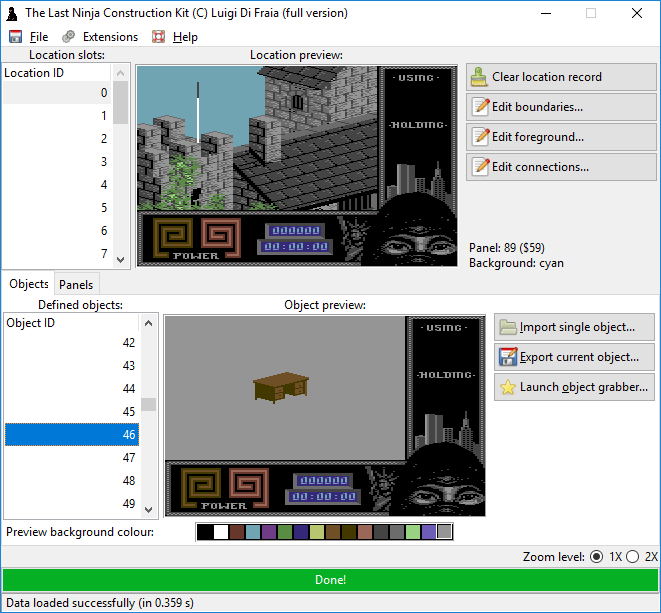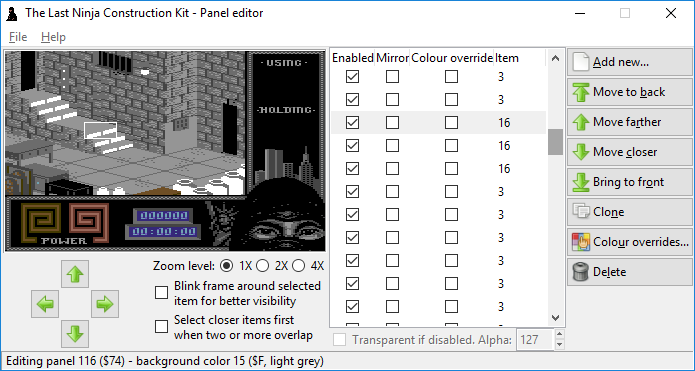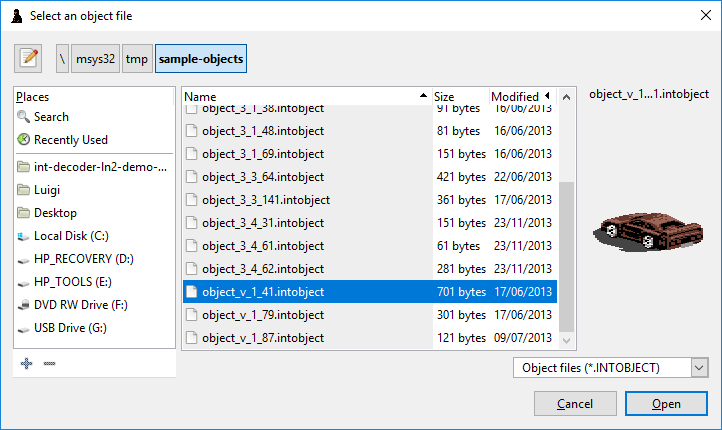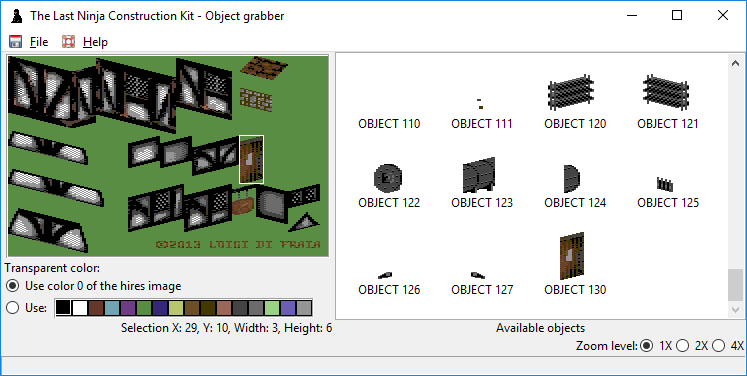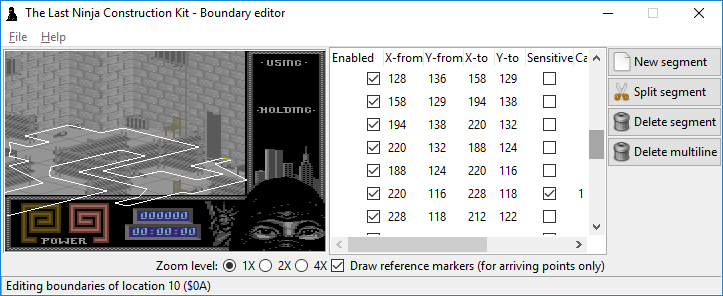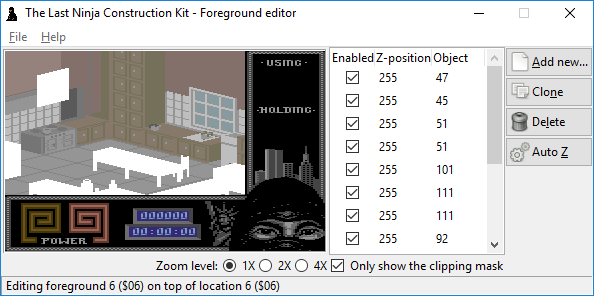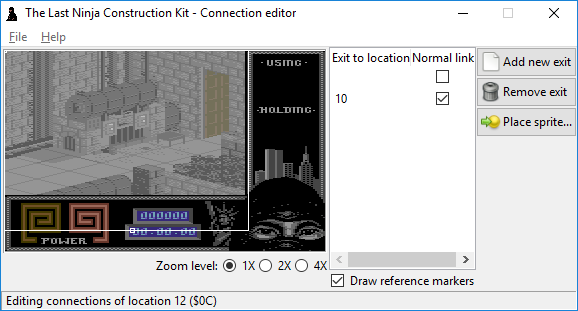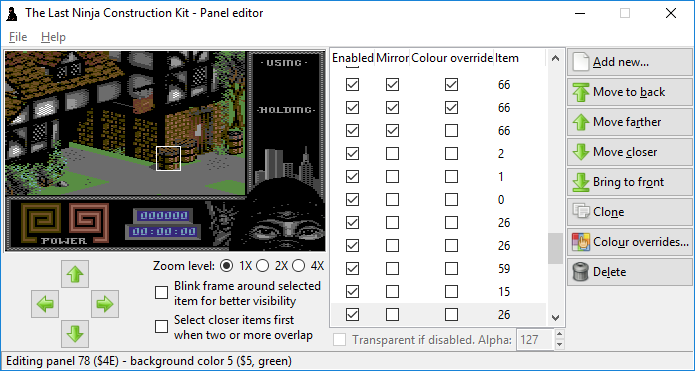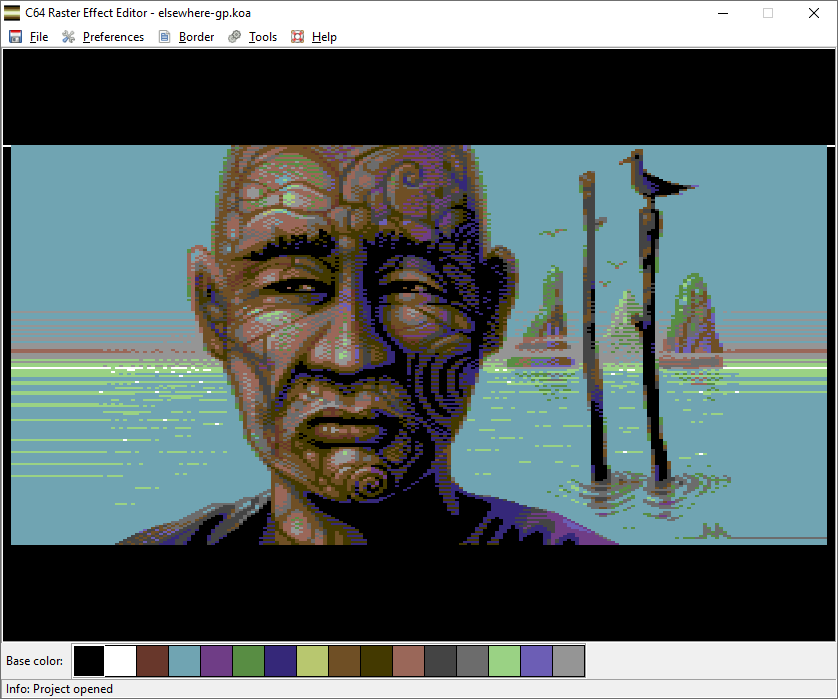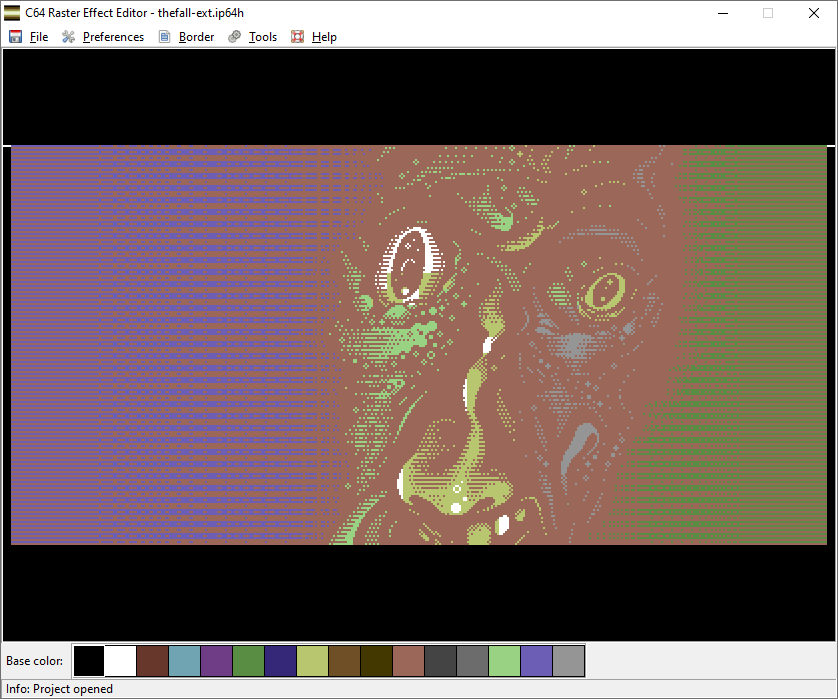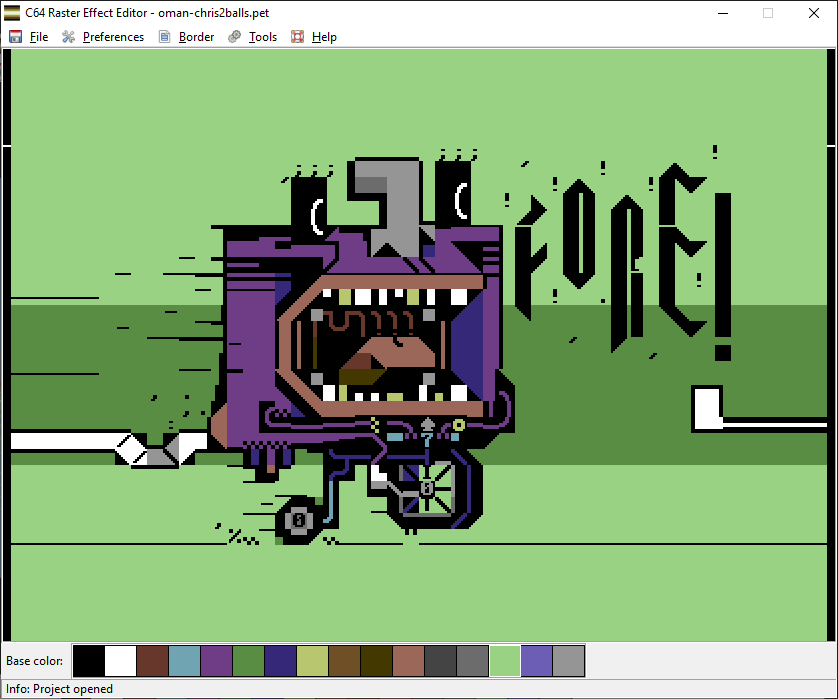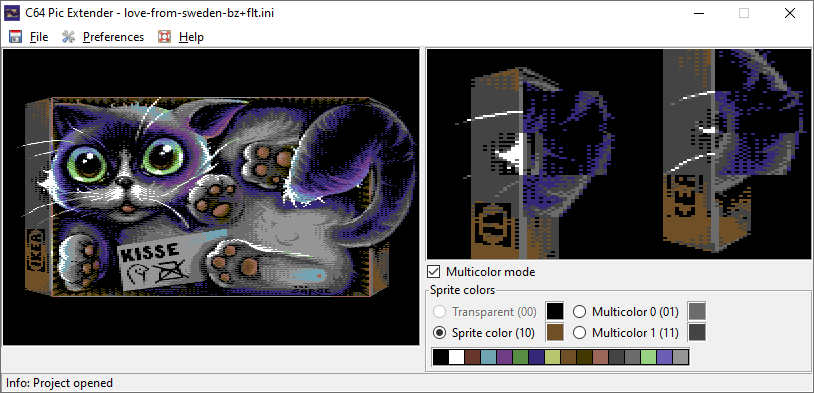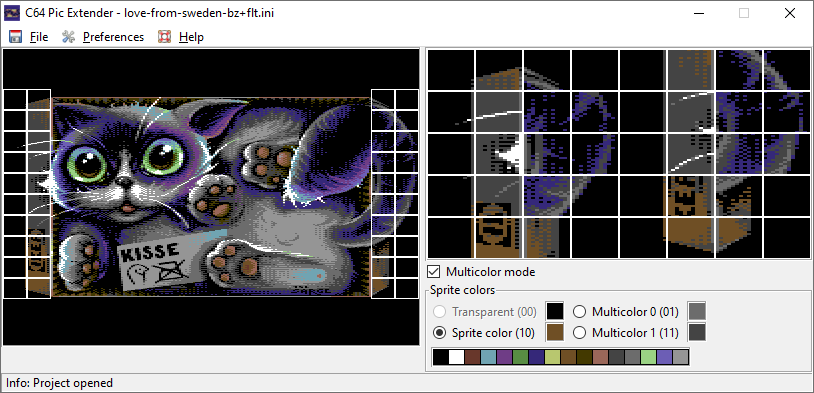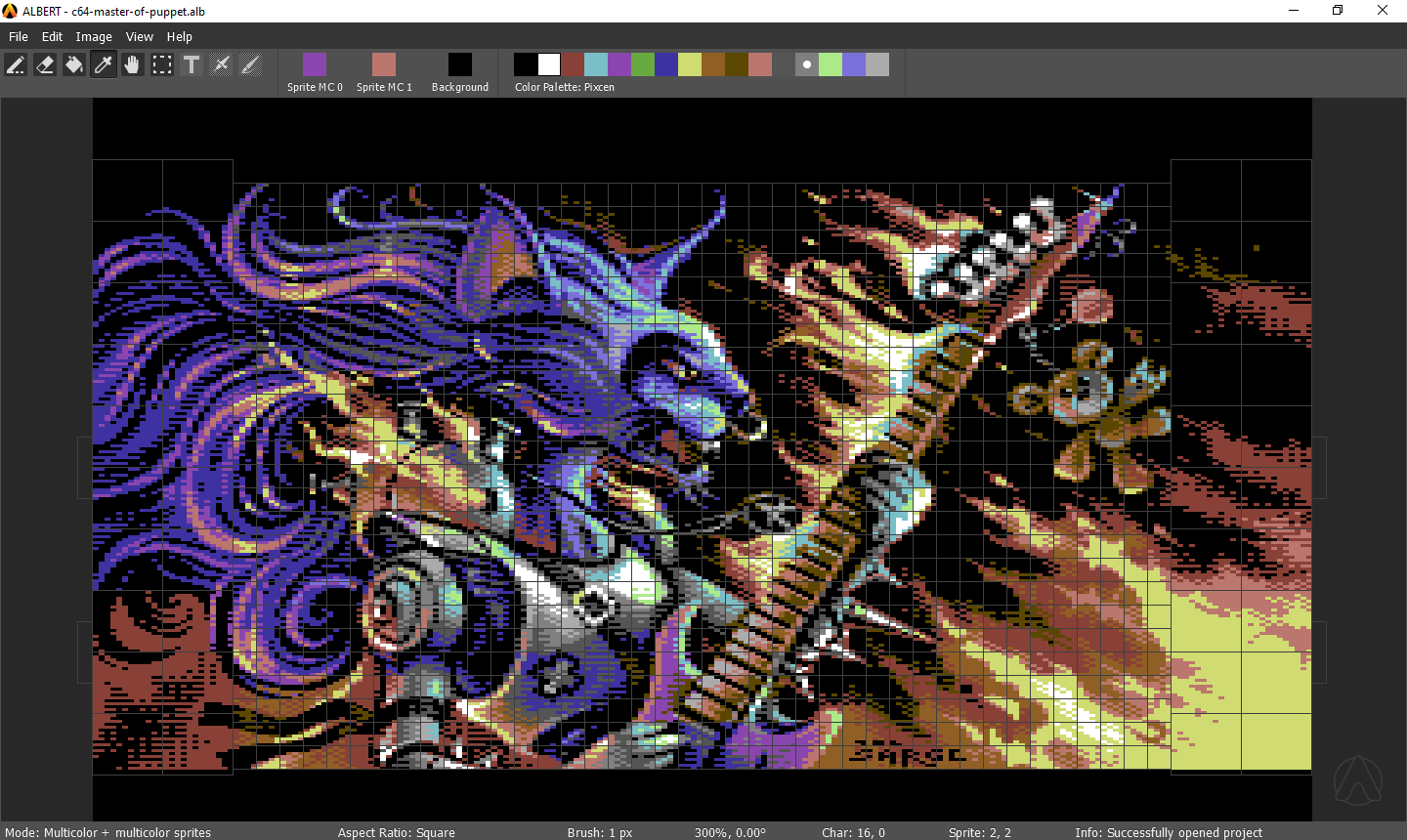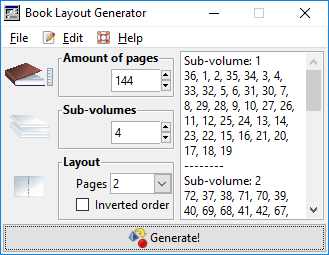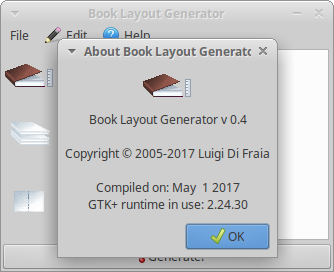A note for Linux users: read before downloading
When downloading .tar.gz files from this website, be mindful that certain Web browsers (e.g. Chrome) will gunzip them. This happens despite these files being served with “content-encoding: x-gzip”, possibly due to their type “content-type: application/x-tar”. Example below:
$ curl -I https://www.luigidifraia.com/hosted/software/c64-rastereditor-1.2-linux-x86_64.tar.gz
% Total % Received % Xferd Average Speed Time Time Time Current
Dload Upload Total Spent Left Speed
0 173k 0 0 0 0 0 0 --:--:-- --:--:-- --:--:-- 0HTTP/2 200
server: aruba-proxy
date: Fri, 25 Dec 2020 17:08:08 GMT
content-type: application/x-tar
content-length: 177476
last-modified: Thu, 24 Dec 2020 11:08:43 GMT
etag: "2b544-5b733d4afffc6"
accept-ranges: bytes
content-encoding: x-gzip
x-servername: ipvsproxy207.ad.aruba.it
You should therefore either:
- use cURL or wget to download these files, or
- rename them to .tar if they were gunzipped by your browser.
A note about macOS builds of my GTK applications
Users can enjoy macOS builds of my GTK+ applications mainly as a result of the help that Christian Vogelgsang (aka lallafa) provided me with. I went through the details in one of my blog posts.
DC2N DMP to TAP conversion utility
A comprehensive utility for DC2N DMP to TAP format conversion, which includes support for DMP version 1 and, consequently, TAP version 2 generation.
Note: this software operates on files produced by the DC2N hardware, whose format is defined here.
Dc2nconv – downloads
- DC2N DMP to TAP command-line utility 3.1 for Linux 64-bit (Ubuntu/Debian)
- DC2N DMP to TAP command-line utility 3.1 for Raspberry Pi 3 Model B (Raspbian)
- DC2N DMP to TAP command-line utility 3.1 for macOS (Intel)
- DC2N DMP to TAP command-line utility 3.1 for Windows (all versions – includes a utility for integration in File Explorer, DC2NShellExtension – see DC2NShellExtension.txt)
PRG to TAP encapsulation utility
To filter my WordPress.com blog entries on this subject click here.
A handy utility for encapsulating PRG file data into TAP files, with a selection of encoding schemes, including CBM’s Kernal Loader, TurboTape 250, and Freeload. Bootable (i.e. with an auto-executable Kernal Loader boot section) TurboTape 250 TAP files can be generated as well. The utility can also be used iteratively to append new data to an existing TAP file.
Finally, downloadable archives include a historical version of the Turbotape 64 utility in PRG format that can be included at the very beginning of a compilation of programs encoded using TurboTape 250, which was a very common layout on tape in the old days.
Prg2tap – downloads
- PRG to TAP command-line utility 1.8 for Linux 64-bit (Ubuntu/Debian)
- PRG to TAP command-line utility 1.8 for Raspberry Pi 3 Model B (Raspbian)
- PRG to TAP command-line utility 1.8 for macOS (Intel)
- PRG to TAP command-line utility 1.8 for Windows (all versions)
Filename extractors
These are two utilities that parse TAP files in order to extract the filename from CBM’s Kernal Loader (also referred to as CBM’s ROM Loader) and Turbotape 250 files.
I wrote a gist that uses the CBM ROM filename extractor in order to append the name of the first CBM ROM file found in each TAP file to the TAP filename itself.
Filename extractors – downloads
- CBM ROM Loader filename extractor utility 1.1 for Linux 64-bit (Ubuntu/Debian)
- CBM ROM Loader filename extractor utility 1.1 for Raspberry Pi 3 Model B (Raspbian)
- CBM ROM Loader filename extractor utility 1.1 for Windows (all versions)
- TT250 filename extractor utility 1.1 for Linux 64-bit (Ubuntu/Debian)
- TT250 filename extractor utility 1.1 for Raspberry Pi 3 Model B (Raspbian)
- TT250 filename extractor utility 1.1 for Windows (all versions)
Replacement Pro-Micro firmware
In case the micro-USB port of one of my AVR based devices (DC2N4-LC, IECHost, C2NEmu, or C64 Cartridge Dumper) broke off, you can use this generic firmware to flash a replacement Pro-Micro board and then use it in conjunction with my device’s client software to flash the firmware for the device itself.
Replacement Pro-Micro firmware – downloads
TAPClean Front End
To filter my WordPress.com blog entries on this subject click here.
TAPClean is a console utility whose key features are:
- Detects and retrieves information about TAP and DC2N DMP file contents
- Tests and reports on the integrity and condition of the files
- Performs structural corrections and optimizations
- Develops a library of all detected files as their binary equivalents and allows content exporting
- Allows conversion to audio format (.AU or .WAV) so TAPs may be played out and recorded back to cassette tape
TAPClean Front End is built using GTK+ 2.x, hence multi-platform, and is not just a front end program as its name might suggest. In fact, it incorporates unique features not found in TAPClean, such as:
- Interactive report of the tape contents with graphical breakdown
- Hex monitor, Disassembler, and CBM BASIC untokenizer for PRG files
- TAP editor
- TAP splitting tool
- TAP repair tool for CBM files (fully automated but manual tweaking is available too!)
- Graphical TAP/DMP analysis tool
TAPClean Front End – downloads
Note: binary packages of TAPClean Front End include TAPClean executables too.
- TAPClean Front End 0.40 for Linux 64-bit (Ubuntu/Debian)
- TAPClean Front End 0.40 for Raspberry Pi 3 Model B (Raspbian)
- TAPClean Front End 0.40 for Windows portable (all versions – includes runtime components)
- GTK+ 2.24.31 runtime installer for Windows (all versions)
- TAPClean Front End 0.40 for Windows (all versions – requires the above GTK+ runtime)
- TAPClean Front End User Manual (PDF)
DC2N4-LC Clients
To filter my WordPress.com blog entries on this subject click here.
Note: this software operates in conjunction with the DC2N4-LC hardware.
Both command-line and GUI clients are available to interact with my DC2N4-LC device.
DC2N4-LC Clients – downloads
- DC2N4-LC command-line utilities 1.0.0 for Linux 64-bit (Ubuntu/Debian)
- DC2N4-LC command-line utilities 1.0.0 for Raspberry Pi 3 Model B (Raspbian)
- DC2N4-LC command-line utilities 1.0.0 for macOS (Intel)
- DC2N4-LC command-line utilities 1.0.0 for Windows (all versions)
- DC2N4-LC multi-threaded GUI client 4.4.2 for Linux 64-bit (Ubuntu/Debian)
- DC2N4-LC multi-threaded GUI client 4.4.2 for Raspberry Pi 3 Model B (Raspbian)
- DC2N4-LC multi-threaded GUI client 4.4.2 for macOS (Intel)
- DC2N4-LC multi-threaded GUI client 4.4.2 for Windows portable (all versions – includes runtime components)
- GTK+ 2.24.31 runtime installer for Windows (all versions)
- DC2N4-LC multi-threaded GUI client 4.4.2 for Windows (all versions – requires the above GTK+ runtime)
The following package is also available:
- DC2N4-LC multi-threaded GUI client 4.4.2 for Windows portable (64-bit, Windows 7 and later – includes runtime components)
IECHost Clients
To filter my WordPress.com blog entries on this subject click here.
Note: this software operates in conjunction with the IECHost hardware.
IECHost Clients – downloads
- IECHost command-line utilities 1.9.1 for Linux 64-bit (Ubuntu/Debian)
- IECHost command-line utilities 1.9.1 for Raspberry Pi 3 Model B (Raspbian)
- IECHost command-line utilities 1.9.1 for macOS (Intel)
- IECHost command-line utilities 1.9.1 for Windows (all versions)
- IECHost command-line nibbling utilities 1.4.2 for Linux 64-bit (Ubuntu/Debian)
- IECHost command-line nibbling utilities 1.4.2 for Raspberry Pi 3 Model B (Raspbian)
- IECHost command-line nibbling utilities 1.4.2 for macOS (Intel)
- IECHost command-line nibbling utilities 1.4.2 for Windows (all versions)
- IECHost multi-threaded GUI client 3.9.2 for Linux 64-bit (Ubuntu/Debian)
- IECHost multi-threaded GUI client 3.9.2 for Raspberry Pi 3 Model B (Raspbian)
- IECHost multi-threaded GUI client 3.9.2 for macOS (Intel)
- IECHost multi-threaded GUI client 3.9.2 for Windows portable (all versions – includes runtime components)
- GTK+ 2.24.31 runtime installer for Windows (all versions)
- IECHost multi-threaded GUI client 3.9.2 for Windows (all versions – requires the above GTK+ runtime)
- IECHost multi-threaded GUI client 3.9.1 User Manual (PDF)
The following package is also available:
- IECHost multi-threaded GUI client 3.9.2 for Windows portable (64-bit, Windows 7 and later – includes runtime components)
Note: nibbling utilities require the use of the extended IECHost firmware that ships with them, instead of the standard IECHost firmware. The former is backward compatible with the latter, but I recommend not mixing things up: use the standard IECHost firmware when running non-nibbling software and the extended IECHost firmware when running nibbling software.
IECHost firmware update “how to” videos
IECHost GUI client issue tracker
The official issue tracker for IECHost GUI client is available here. If you have an issue with the client that is not already listed there, or would like to request a new feature, feel free to contact me or raise it.
C2NEmu Clients
To filter my WordPress.com blog entries on this subject click here.
Note: this software operates in conjunction with the C2NEmu hardware.
Both command-line and GUI clients are available to interact with my C2NEmu device. GUI clients can additionally be used to create and/or edit IDX files.
C2NEmu Clients – downloads
- C2NEmu command-line playback client 1.3 for Linux 64-bit (Ubuntu/Debian)
- C2NEmu command-line playback client 1.3 for Windows (all versions)
- C2NEmu command-line record client 1.0 for Linux 64-bit (Ubuntu/Debian)
- C2NEmu command-line record client 1.0 for Windows (all versions)
- C2NEmu multi-threaded GUI client 2.5 for Linux 64-bit (Ubuntu/Debian)
- C2NEmu multi-threaded GUI client 2.5 for Raspberry Pi 3 Model B (Raspbian)
- GTK+ 2.24.31 runtime installer for Windows (all versions)
- C2NEmu multi-threaded GUI client 2.5 for Windows (all versions – requires the above GTK+ runtime)
Commodore 64 Cartridge Dumper Clients
To filter my WordPress.com blog entries on this subject click here.
Note: this software operates in conjunction with the Commodore 64 Cartridge Dumper hardware.
Commodore 64 Cartridge Dumper Clients – downloads
- Commodore 64 Cartridge Dumper utilities 2.1.3 for Linux 64-bit (Ubuntu/Debian)
- Commodore 64 Cartridge Dumper utilities 2.1.3 for Raspberry Pi 3 Model B (Raspbian)
- Commodore 64 Cartridge Dumper utilities 2.1.3 for macOS (Intel)
- Commodore 64 Cartridge Dumper utilities 2.1.3 for Windows (all versions)
Note: the firmware update option is only relevant to the Pro-Micro based devices. Older Blue Pill based devices do not support updates via the USB serial port.
Integrator 2012 and The Last Ninja Construction Kit
To filter my WordPress.com blog entries on this subject click here. This is the post where it all started a while ago!
Integrator 2012 is one of my most ambitious projects to date: a GTK+ 2.x based, hence multi-platform, viewer targeting those games that were designed using John Twiddy’s “Integrator”. The ones I am aware of are: The Last Ninja, LN2, LN3, Vendetta and Time Machine.
Not much of the original C64 software came to us through time, but a “Bug Free PDS Ninja III Editor” that’s almost surely based on original work done by John.
Quoting from The Last Ninja Archives: John Twiddy wrote an editor (he called it the integrator) that let Hugh [Riley] pick up the individual background elements like trees and bushes and drop them into place on screen. It also worked out the best colour combination for each element when they overlaid each other. John then designated which pixels were foreground and cut those bits out of the ninja sprite as it went past.
The above is consistent with the fact that the “Bug Free PDS Ninja III Editor” has an option for importing objects (it is possible to grab them from multicolour pictures) and combine them as part of the screen design. Actually we don’t know whether John did the rest manually or he wrote additional editors in order to complete the game design, such as designation of foreground (i.e. sprite clipping masks), definition of events, boundaries that confine movements and trigger events, etc.
The Last Ninja Construction Kit extends Integrator 2012 and is set to be the one-stop shop for all the above mentioned activities: my aim is to make it extremely usable and intuitive. Being a cross-development tool running on modern development systems not only it offers the ability to browse what was done back in the 80’s and 90’s, but also produce new designs that could be used for a new C64 game (and consequently other platforms too).
Integrator 2012 – downloads
The following download options are available for Integrator 2012:
- Integrator 2012 LN bundle 1.5.1 for Linux 64-bit (Ubuntu/Debian)
- Integrator 2012 LN2 bundle 1.5.1 for Linux 64-bit (Ubuntu/Debian)
- Integrator 2012 LN3 bundle 1.5.1 for Linux 64-bit (Ubuntu/Debian)
- Integrator 2012 Time Machine bundle 1.5.1 for Linux 64-bit (Ubuntu/Debian)
- Integrator 2012 Vendetta bundle 1.5.1 for Linux 64-bit (Ubuntu/Debian)
- Integrator 2012 LN bundle 1.5.1 for Raspberry Pi 3 Model B (Raspbian)
- Integrator 2012 LN2 bundle 1.5.1 for Raspberry Pi 3 Model B (Raspbian)
- Integrator 2012 LN3 bundle 1.5.1 for Raspberry Pi 3 Model B (Raspbian)
- Integrator 2012 Time Machine bundle 1.5.1 for Raspberry Pi 3 Model B (Raspbian)
- Integrator 2012 Vendetta bundle 1.5.1 for Raspberry Pi 3 Model B (Raspbian)
- Integrator 2012 LN bundle 1.5.1 for macOS (Intel)
- Integrator 2012 LN2 bundle 1.5.1 for macOS (Intel)
- Integrator 2012 LN3 bundle 1.5.1 for macOS (Intel)
- Integrator 2012 Time Machine bundle 1.5.1 for macOS (Intel)
- Integrator 2012 Vendetta bundle 1.5.1 for macOS (Intel)
- Integrator 2012 LN bundle 1.5.1 for Windows portable (all versions – includes runtime components)
- Integrator 2012 LN2 bundle 1.5.1 for Windows portable (all versions – includes runtime components)
- Integrator 2012 LN3 bundle 1.5.1 for Windows portable (all versions – includes runtime components)
- Integrator 2012 Time Machine bundle 1.5.1 for Windows portable (all versions – includes runtime components)
- Integrator 2012 Vendetta bundle 1.5.1 for Windows portable (all versions – includes runtime components)
- GTK+ 2.24.31 runtime installer for Windows (all versions)
- Integrator 2012 LN bundle 1.5.1 for Windows (all versions – requires the above GTK+ runtime)
- Integrator 2012 LN2 bundle 1.5.1 for Windows (all versions – requires the above GTK+ runtime)
- Integrator 2012 LN3 bundle 1.5.1 for Windows (all versions – requires the above GTK+ runtime)
- Integrator 2012 Time Machine bundle 1.5.1 for Windows (all versions – requires the above GTK+ runtime)
- Integrator 2012 Vendetta bundle 1.5.1 for Windows (all versions – requires the above GTK+ runtime)
C64 Raster Effect Editor
To filter my WordPress.com blog entries on this subject click here.
The C64 Raster Effect Editor is a cross-development tool used to add stable side-border raster bars to Multicolor, Hires or PETSCII artwork for the Commodore 64.
Designs can be saved to a project file and progressed at a later time. A project can be exported to an executable PRG file that:
- is compressed with Exomizer,
- includes a bit of support code for smoothing video transitions and disabling the restore key, and
- has raster bars that are stable on PAL and NTSC machines, including old NTSC and Drean.
Here are a few videos on how to use the application:
- Automatic raster bar generation
- Introducing the compact interface
- Replicating a selection in order to create repeating patterns
Note for PETSCII artwork: the only PETSCII editor that saves files compatible with C64 Raster Effect Editor I am aware of is Marq’s PETSCII Editor (November 2020 Edition).
C64 Raster Effect Editor – downloads
- C64 Raster Effect Editor 1.4.2 for Linux 64-bit (Ubuntu/Debian)
- C64 Raster Effect Editor 1.4.2 for Raspberry Pi 3 Model B (Raspbian)
- C64 Raster Effect Editor 1.4.2 for macOS (Intel)
- C64 Raster Effect Editor 1.4.2 for Windows portable (all versions – includes runtime components)
- GTK+ 2.24.31 runtime installer for Windows (all versions)
- C64 Raster Effect Editor 1.4.2 for Windows (all versions – requires the above GTK+ runtime)
C64 Pic Extender
To filter my WordPress.com blog entries on this subject click here.
The C64 Pic Extender is a multi-platform cross-development tool used to augment Multicolor and PETSCII artwork for the Commodore 64 by adding sprites in the left and right borders of the visible screen.
Designs can be saved to a project file and progressed at a later time. A project can be exported to an executable PRG file that:
- is compressed with Exomizer,
- includes a bit of support code for smoothing video transitions and disabling the restore key, and
- optionally includes a transition effect to highlight the use of sprites in the side-borders.
Note for PETSCII artwork: the only PETSCII editor that saves files compatible with C64 Pic Extender I am aware of is Marq’s PETSCII Editor (November 2020 Edition).
C64 Pic Extender – downloads
- Sprite template to be used as a design aid in your favorite sprite editor
- C64 Pic Extender 1.1.4 for Linux 64-bit (Ubuntu/Debian)
- C64 Pic Extender 1.1.4 for Raspberry Pi 3 Model B (Raspbian)
- C64 Pic Extender 1.1.4 for macOS (Intel)
- C64 Pic Extender 1.1.4 for Windows portable (all versions – includes runtime components)
- GTK+ 2.24.31 runtime installer for Windows (all versions)
- C64 Pic Extender 1.1.4 for Windows (all versions – requires the above GTK+ runtime)
ALBERT
To filter my WordPress.com blog entries on this subject click here.
ALBERT is a multi-platform cross-development pixel art editor that allows its users to create Commodore 64 images extending into the left and right borders of the visible screen, with sprites to display the extra pixels, using an uncomplicated drawing workflow.
ALBERT has moved! The official homepage for ALBERT is now: https://www.albertpixels.com/
Book Layout Generator
Book Layout Generator is a multi-platform tool that produces the page sequence required to print long documents in a book fashion.
Users just need to specify how many pages are there in a document and whether to print 2 or 4 pages on each side of the sheet (the latter choice, 4, requires cutting the sheets).
Optionally, a document can also be divided into sub-volumes, bound separately.
If a book has to be printed from bottom to top (e.g for books that are read from right to left), there also is an option for doing just that.
The program will then produce the exact sequence to provide to a “print dialog”.
Book Layout Generator – downloads
- Book Layout Generator 0.4 for Linux 64-bit (Ubuntu/Debian)
- GTK+ 2.24.31 runtime installer for Windows (all versions)
- Book Layout Generator 0.4 for Windows (all versions – requires the above GTK+ runtime)

